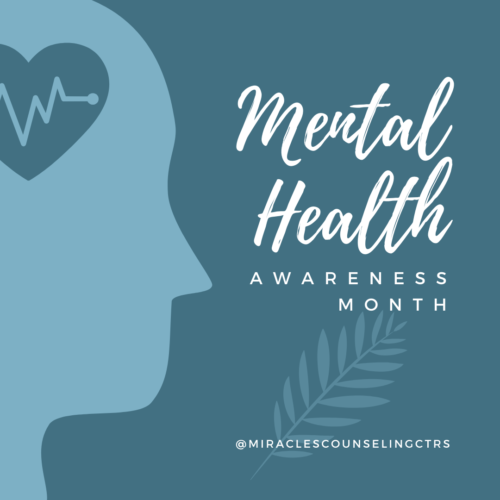
Trauma’s Impact on You
Understanding the Trauma Response
When you hear the word trauma, what comes to mind?
Perhaps you picture a soldier returning home from war, haunted by memories too heavy to carry. That image is valid but it’s also incomplete. Because here’s the truth: trauma doesn’t just wear combat boots. Trauma can wear yoga pants. It can sit at a desk job. It can raise children, scroll social media, or smile through the pain at family gatherings.
Maybe you’ve even minimized your own pain because you didn’t have bruises to show for it. Reviewing your own trauma through a lens tailored to what you thought was classified as “actual trauma”, telling yourself “I haven’t been through anything that bad. Other people have had it worse.” But hear me clearly: if something overwhelmed your ability to cope, that was trauma.
So… What Is Trauma, Really?
Trauma isn’t about what happened. It’s about how your nervous system responded to what happened. This means that your brain has taken information about an experience, and hard wired a response when it perceives any other similar events. Trauma is any experience that felt threatening, unsafe, or emotionally overwhelming, especially if it left you feeling powerless, unsupported, or alone. This could be a one-time event (like an accident), or ongoing situations (like emotional neglect, toxic relationships, or growing up in a chaotic home). It doesn’t have to be loud to be a trauma. Sometimes the quietest, most invisible wounds run the deepest.
Common Symptoms of Trauma
There’s the trauma responses you expect, and then the ones that sneak up on you, the kind that make you feel like, “Why am I like this?” Let’s start with the ones that are often linked with Post-Traumatic Stress Disorder (PTSD) or acute trauma, including:
- Flashbacks – feeling like you’re reliving the trauma, even if it happened years ago.
- Nightmares/Night terrors – sleep disturbances of fear, memory or anguish
- Intrusive thoughts that pop into your mind and won’t go away.
- Hypervigilance – constantly scanning for danger, unable to relax.
- Panic attacks – sudden surge of anxiety causing mental and physical symptoms.
- Dissociation – zoning out or feeling disconnected from your body or surroundings.
These are intense and often misunderstood symptoms.
These symptoms are your brain’s way of trying to protect you from a perceived threat,
even if that threat is no longer real.
Ways Trauma Shows Up That You Might Not Realize
What is interesting about trauma, is that you may have been working on it in therapy without even knowing it. You don’t need flashbacks or nightmares to be considered traumatized. Trauma can show up in more subtle, everyday ways. It might look like constant self-doubt or struggling with feelings of impostor syndrome. Or maybe you are questioning your worth despite evidence to the contrary.
In relationships, you may have difficulty setting boundaries or saying “no.” This then puts others’ needs ahead of your own. When counseling goals have been around feeling like you’re never enough, this could be trauma too. Other aspects of your emotional health that potentially could be trauma related is persistent fears of abandonment or rejection in relationships. Trauma can create a hyper-independent personality, who believes they can’t rely on others – because doing so has only led to disappointment. Others may feel emotionally numb, as if they’re merely observing life rather than fully participating in it. As you can see, trauma can impact you in very subtle ways.
Forms of Trauma
Did you know that trauma comes in many shapes? It’s important to recognize there’s no “trauma Olympics.” No scale of “yours counts, but mine doesn’t.” Trauma can come in many forms—whether it stems from loss, abuse, neglect, betrayal, sudden change, or even experiences that might look “small” from the outside but feel overwhelming on the inside.
- Acute Trauma – One-time events like a car accident, assault, or natural disaster.
- Chronic Trauma – Repeated exposure to distress, like ongoing abuse, neglect, or bullying.
- Complex Trauma – A mix of many traumatic experiences, often starting in childhood, that affect your sense of self and relationships.
- Developmental Trauma – Occurs during early life, when your brain and sense of safety are still forming.
- Secondary or Vicarious Trauma – When you’re deeply affected by witnessing or hearing about someone else’s trauma (common in caregivers, therapists, first responders).
- PTSD and C-PTSD – Diagnosed conditions with specific symptom clusters, including flashbacks, nightmares, and emotional dysregulation.
No trauma is “too small” to matter. Pain isn’t a competition.
Trauma Shapes our Reactions to the Present
Trauma can also impact how we react to some people and situations. Have you ever found yourself shutting down in conversations? Perhaps, you ‘re overreacting to “small” things? That’s not you being “too sensitive” or “crazy.” That’s your nervous system trying to protect you.These responses are not conscious choices but automatic protective mechanisms.
Common trauma responses include:
Fight: Anger, control, confrontation. You might snap quickly or try to stay in charge to avoid feeling vulnerable.
Flight: Perfectionism, overworking, anxiety. You stay “busy” to outrun the discomfort.
Freeze: Numbness, procrastination, zoning out.
Fawn: People-pleasing, codependency, self-abandoning, shape-shifting to be “safe” or loved.
It’s important to remember these responses are adaptive—they once served a protective purpose. It’s just that this reaction is no longer useful. Now that you see these for what they are, you are one more step towards healing.
Trauma Therapy Helps you Move Forward
With therapy and support, individuals can learn to regulate their nervous system, build healthier coping strategies, and experience a greater sense of safety. Healing isn’t about forgetting or pretending it didn’t matter. It’s about making the choice now, to finally give your body and brain the safety they needed back then. Healing from trauma is not linear, it’s a process. The most important thing to remember is.. you are not weak for being affected by what happened to you. You are not dramatic for acknowledging your pain and giving it a name. And above all, you are not alone in how you feel.
Start small. Learn to notice your triggers without judgment. Practice self-compassion, even if it feels foreign. Reach out for support, whether it’s trauma therapy, community, or trauma-informed resources. EMDR therapy, Brainspotting, or TFCBT are just a few options available to you.
And most importantly: stop comparing your pain to someone else’s. Your story matters. The body remembers. Your healing is valid…
Learn More

Beyond Childhood: ADHD in Adults
Beyond Childhood: ADHD in Adults
Whether you’re an adult diagnosed with ADHD or you think you might have ADHD, you’ve probably heard all sorts of things. Phrases like, “You should be able to focus by now,” or “Why don’t you just get organized?” But here’s the truth—ADHD doesn’t magically disappear as you age. It just evolves, often in ways that are harder to spot. So, let’s break it down, because understanding what ADHD really looks like in adults is key to finally getting the help and understanding you deserve.
What ADHD in Adults Looks Like
First things first: ADHD in adults is not just about being hyperactive or “unable to sit still” like the picture we usually paint of ADHD in kids. Sure, sometimes you still struggle with that, but adult ADHD shows up in ways that are way more subtle and tricky. It’s not always about running around or climbing on the furniture; sometimes, it’s about that constant sense of being overwhelmed, forgetful, impulsive, or disorganized, even in a high-stakes adult world.
Adults with ADHD have difficulty accepting delayed gratification which is what leads to impulsive decision making. Do you have a tendency to seek immediate rewards and struggle with waiting for long-term benefits.This could involve impulsive purchases, career changes, or relationship decisions. Impulsivity in adults can affect areas like spending habits, eating, or seeking out pleasure or excitement.
Your not just busy….
Many adults with ADHD experience difficulty focusing on tasks, especially the ones that aren’t immediately engaging or interesting. Let’s say you start a task, but then get distracted by something else; an email, a phone notification, a random thought—and then suddenly, that work project or important email you meant to send is nowhere to be found. Sound familiar? You’re not alone. Research shows that inattention and impulsivity are core components of ADHD, and they manifest in ways that can feel frustrating as an adult (National Institute of Mental Health, 2022).
Still for many, the battle is about time management. Do you find yourself feeling like deadlines tend to sneak up on you? Or like it’s hard to follow a routine? ADHD can make it seem like your internal clock is always a few steps behind everyone else’s. You even find yourself procrastinating on things that you know need to get done, but it feels like there’s this mental block that makes focusing feel impossible. And then when you do sit down to do something, it’s like trying to juggle 15 thoughts at once; Your mind is constantly in overdrive.
Feeling overwhelmed but other’s have it together?
Then there’s the emotional rollercoaster. Adults with ADHD often experience higher levels of stress, anxiety, and frustration. The self-doubt, the feelings of inadequacy, constantly feeling like you’re not measuring up to your potential. Those with adults with ADHD will think “Why can’t I just get it together?” The answer isn’t simple. ADHD affects how your brain regulates emotions, making it harder to control stress, frustration, and even excitement (Barkley, 2015).
How ADHD in Adults Differs from ADHD in Children

If you’ve ever watched a child with ADHD in action, you’ve probably noticed the typical signs: hyperactivity, constant movement, and difficulty paying attention. But as a child grows into adulthood, ADHD looks a lot different. The external hyperactivity has reduced, but the internal restlessness is still there. In fact, one major difference between childhood and adult ADHD is that hyperactivity tends to turn into mental restlessness. This leaves you feeling like your mind is always racing and never settling down, even if you’re not moving physically (American Psychiatric Association, 2021).
Children with ADHD often have obvious behaviors that teachers, parents, and doctors can easily spot. As an adult, however, the symptoms can be more hidden. ADHD presents itself as a lack of organization, a failure to meet deadlines, or chronic forgetfulness. These presentations can easily be brushed off as laziness or poor time management, especially by people who don’t understand the full scope of ADHD. Adults with ADHD can also have trouble in relationships because of their impulsivity or tendency to overlook details, like missing important dates or forgetting what their partner said just hours ago. The emotional toll of feeling misunderstood can be overwhelming (Kooij et al., 2010).
The Hidden Struggles: Why ADHD in Adulthood is Harder to Spot
Adult ADHD is often underdiagnosed. As we get older, there’s this pressure to “have it together” in ways that just aren’t realistic for people with ADHD. It’s easy to write off symptoms as something else, like stress, anxiety, or just “being disorganized” (National Institute of Mental Health, 2022). You’ve gone through your life thinking, “I’m just a bit messy” or “I’m just forgetful,” but let’s face it, those small things add up, affecting your career, your relationships, and your mental health.
It’s also worth mentioning that co-existing conditions are common. ADHD often coexists with other conditions, like anxiety or depression, which can make things even harder to identify. Which leads you to feel like there’s something more going on, but can’t quite put your finger on it.
So, What Can You Do?
If you’re reading this and thinking, “This sounds exactly like me,” you’re not alone. Many people deal with ADHD every day and don’t realize what it actually is. You don’t have to suffer in silence. ADHD in adults is real, and it can be managed with the right tools. Therapy, medication or natural supplements, lifestyle changes, and creating structure in your day-to-day life can all make a massive difference.
If you think you might have ADHD, it’s worth talking to a healthcare provider who specializes in ADHD diagnosis and treatment. Getting a proper diagnosis can open the door to the support and resources that can make your day-to-day life a lot more manageable. Therapists at Miracles Counseling Centers can help you to begin assessing the possibility that ADHD is actually what is impacting your day to day functiioning.
Learn More

Mental Health is the National Focus of May
This month, Miracles Counseling Centers is joining the national movement to raise awareness about mental health. Millions of Americans are currently living with a mental illness, and this number is growing. The sad reality is that many of these individuals do not receive the support they need due to stigma or a lack of understanding surrounding mental health, the resources available to them, and the importance of seeking help. Mental health is a huge part of our overall health, so we must take care of it! This is why it is so important that we take time this month to engage in intentional conversations about mental health, fight against stigma, and show our support for those in our lives who are struggling. We want to start by sharing information on the mental health resources available to you! That’s why we’ve put together a list of some of the larger mental health advocacy groups out there and how they work to support mental health in our country.
Mental Health America (MHA)
Who They Are: Mental Health America is a national community-based nonprofit that is focused on promoting mental health as a critical part of overall wellness, including prevention services for all, early identification for those at risk, early identification & intervention for those at risk, and integrated care, services, and supports for those who need them, with recovery as the goal.
What They Do: MHA provides education and outreach to help Americans of all ages to better understand prevention, early identification, and intervention through access to online screening tools, information, and events. MHA collaborates with its over 200 affiliates in 41 states to bring information and referral, support groups, rehabilitation services, as well as socialization and housing services to those struggling with mental health issues and their loved ones in communities around the country. MHA also works with these affiliates to advance policy recommendations promoting mental health.
Website: https://mhanational.org/
National Alliance on Mental Health (NAMI)
Who They Are: The National Alliance on Mental Health is the nation’s largest grassroots mental health organization dedicated to building better lives for the millions of Americans affected by mental illness. NAMI started as a group of families around a kitchen table in 1979 and is now an alliance of more than 600 local Affiliates and 48 State Organizations who work in our communities to raise awareness and provide support and education to those in need.
What They Do: NAMI offers educational classes, training, and presentations on various mental health topics. They advocate for public policy changes in favor of mental health. The toll-free NAMI HelpLine is available to anyone in need of emotional health support. NAMI leads public events and activities to fight mental health stigma in communities across the nation. Their website has lots of information on mental health conditions and their appropriate treatments, as well as blog posts that share personal stories.
Website: https://nami.org/home
American Foundation for Suicide Prevention (AFSP)
Who They Are: The American Foundation for Suicide Prevention is a voluntary health organization that seeks to provide a national community for those affected by suicide in an effort to empower and advocate for them. AFSP’s mission is to save lives and bring hope to those in our country who have been impacted by suicide.
What They Do: The AFSP funds scientific research and advocates for public policies in mental health and suicide prevention. They also engage in efforts to educate the public about mental health and suicide prevention and provide support groups for survivors of suicide loss and those affected by suicide. Their website has information for individuals having suicidal thoughts, for those who have lost or are worried about someone, and those who have survived a suicide attempt.
Website: https://afsp.org/
Anxiety and Depression Association of America (ADAA)
Who They Are: The Anxiety and Depression Association of America strives to improve the quality of life for individuals who struggle with anxiety and depression.
What They Do: The ADAA works to find new treatments in hopes of one day preventing and curing anxiety, depressive, obsessive-compulsive, and trauma-related disorders. They offer education on these disorders, including articles, webinars, and other resources, to help individuals better understand anxiety and depression. The ADAA also offers training to help turn their research findings into practice.
Website: https://adaa.org/
Child Mind Institute
Who They Are: The Child Mind Institute is the leading independent nonprofit in children’s mental health. They are dedicated to transforming the lives of children and families struggling with mental health and learning disorders by giving them the help that they need.
What They Do: The Child Mind Institute holds workshops, talks, and conversations for parents and families. They also have a Family Resource Center on their website, with parenting guides, a symptom checker tool to inform parents about possible diagnoses, a resource finder, and an option to submit questions.
Website: https://childmind.org/
Learn More
